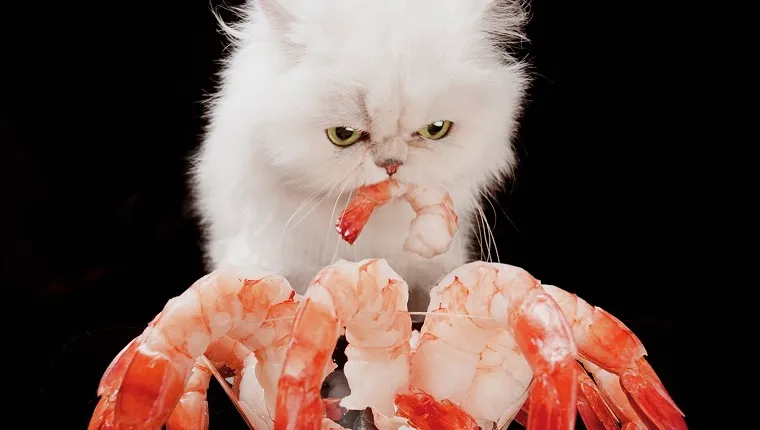Ahoy, seafood lovers and feline aficionados! Today, we’re diving deep into the briny world of shrimp and exploring whether it’s safe to share this oceanic delight with our beloved cats. Get ready for some expert insights from veterinarians and government bodies as we explore the shrimp’s place in your cat’s diet.
Shrimp Unveiled
The Tempting Treasures of the Sea
Shrimp, those delectable crustaceans, are a seafood staple in many human diets. They’re prized for their sweet, succulent meat and are commonly enjoyed in various dishes, from scampi to sushi.
Government Guidance
The U.S. Food and Drug Administration (FDA) suggests that feeding your cat foods not specifically formulated for their nutritional needs should be done sparingly and in moderation. So, let’s take a closer look at whether shrimp fits the bill.
Is Shrimp Safe for Cats?
The Short Answer
Yes, cats can eat shrimp in moderation, but there are a few caveats. Shrimp can provide some nutritional benefits for your feline friend, but it should never replace their regular cat food.
Nutritional Perks
Shrimp is a good source of lean protein, which is an essential component of a cat’s diet. It also contains vitamins and minerals like vitamin B12 and iodine, which can be beneficial in small amounts.
Potential Pitfalls
While shrimp can offer some nutritional value, it’s not a complete or balanced meal for cats. If you decide to share shrimp with your cat, ensure it’s plain, cooked, and free from any seasonings, additives, or sauces, which can be harmful to felines.
Allergies and Digestive Sensitivities
Just like humans, cats can have allergies or sensitivities to certain foods, including shrimp. Introduce shrimp slowly and watch for any adverse reactions, such as vomiting, diarrhea, or excessive itching.
How to Serve Shrimp to Your Cat
Small and Occasional Treats
If you’re treating your cat to shrimp, keep it small and infrequent. A tiny piece of cooked, plain shrimp is sufficient as an occasional treat.
Avoid Raw Shrimp
Never feed your cat raw shrimp. Raw seafood can contain harmful bacteria and parasites that could make your cat sick.
No Shells or Tails
Always remove the shells, tails, and any potential small bones from the shrimp to prevent choking hazards or digestive issues.
Conclusion
In a nutshell, shrimp can be a tasty and occasional treat for your cat, but it should never replace their regular cat food. Ensure that any shrimp you offer is plain, cooked, and served in small, manageable portions. If you’re ever uncertain about what’s safe for your furry friend’s diet, consult your veterinarian for guidance. Bon appétit to your cat’s occasional seafood delight!
- Best LeadsGorilla Alternatives for 2025 - April 19, 2025
- Best Coldlytics Alternatives for 2025 - April 19, 2025
- Best Brevo Alternatives for 2025 - April 18, 2025



